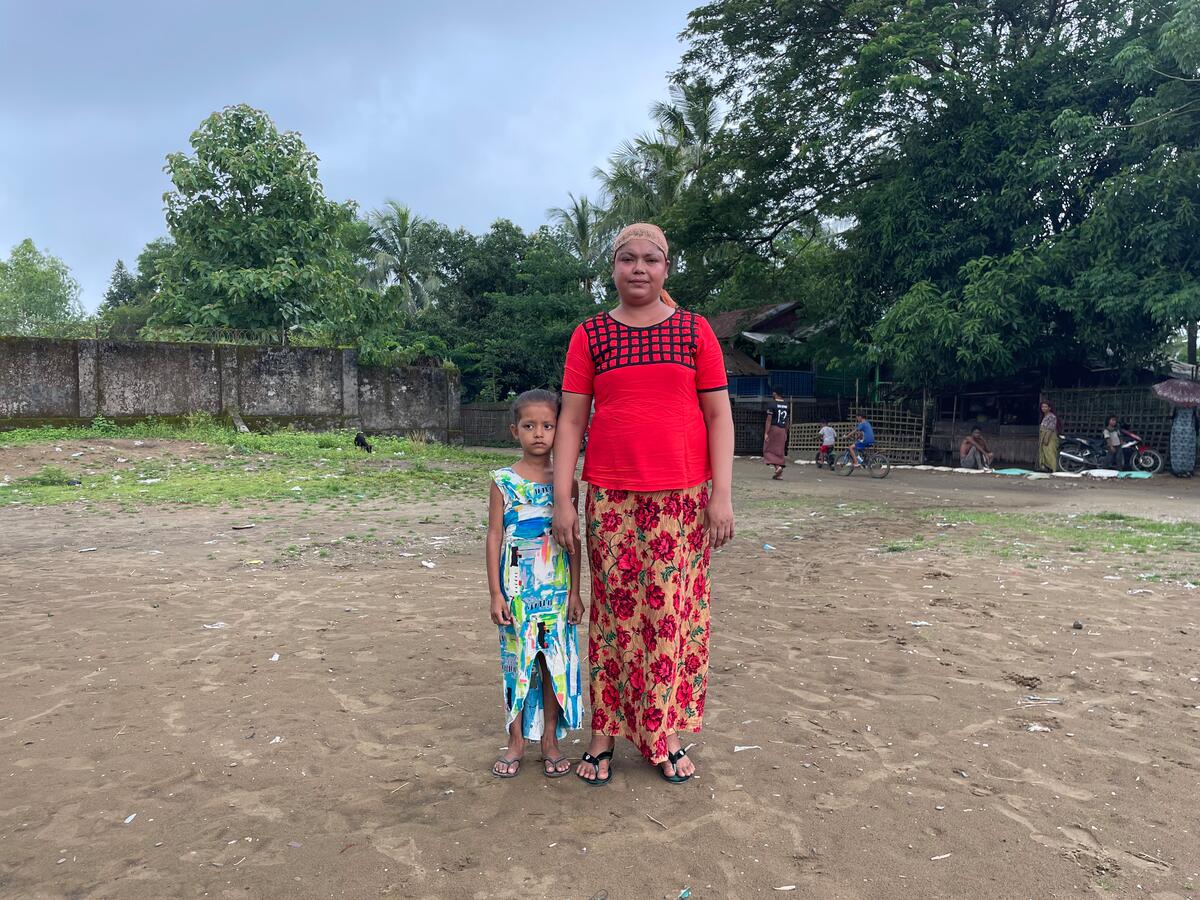UNHCR chief visits Central African Republic, pledges support for the forcibly displaced
UNHCR chief visits Central African Republic, pledges support for the forcibly displaced

BANGUI, Central African Republic, March 10 (UNHCR) - UN High Commissioner for Refugees António Guterres has visited refugees and internally displaced people in the Central African Republic and pledged to help improve living conditions for them and their families.
Guterres flew back to Geneva in Switzerland on Wednesday after spending four days in the landlocked African nation in a bid to draw global attention to the plight of more than 30,000 refugees and some 183,000 internally displaced people (IDP) that UNHCR is helping to protect and assist there. The refugees are mostly from the Democratic Republic of the Congo, Chad, Rwanda and the Sudan
On Saturday, Guterres visited IDPs in the north-western towns of Paoua and Kabo, some 500 kilometres from the capital, Bangui. Representatives of the displaced communities cited shelter, clean water and seeds for cultivation as being among their most pressing needs.
"We lost everything when we fled and our villages are in ruins. We need your help to rebuild our houses," Koure Marie told the High Commissioner in Paoua. She was speaking on behalf of women who, like herself, had returned to their destroyed villages for the first time since fleeing violence five years ago. They had been living in the bushes or sheltering across the border in southern Chad.
After a tour of the damaged villages, Guterres said he was shocked at the appalling conditions that the displaced populations were living in, especially the lack of clean water, schools and health care. "We have limited resources, but we promise to help you restart your lives," he said.
Northern CAR has been plagued by chronic insecurity since 2005, due to the presence of rebels and bandits. The civilians in the region have been harassed by these armed groups. However, despite its instability, the north has also been a place of asylum for refugees from the Darfur region in neighbouring Sudan.
They are living in the Sam Ouandja camp, where they fear for their safety. The High Commissioner visited Sam Ouandja on Sunday. "Rebels constantly threaten us and they don't want to see us step outside our camp. They falsely accuse us refugees of being the cause of trouble in Sam Ouandja," a camp leader, Moussa, complained to Guterres.
"We have to sell our food to pay fines that rebels impose on us for crimes we did not commit," claimed Hawa, another Darfurian refugee. "We have nothing left to eat. We want to go far away from this place," she told Guterres, who assured the refugees that UNHCR would work with the government of the Central African Republic to reinforce their security.
Established in 2007, Sam Ouandja hosts some 3,500 refugees, who fled from violence in Darfur. Most had to walk or go by donkey. Fatma, one of the camp residents, said she fled her village in 2007 when it came under attack. "I grabbed my two children and ran away. We walked for 10 days before we found ourselves here in the Central African Republic," she said, adding: "My husband and our eldest son fled in another direction. I have not heard from them since."
Guterres said the international community had a duty to help the Central African Republic deal with the humanitarian crisis facing refugees and IDPs. "It is unfair that all the attention is focused on Iraq, Afghanistan and Sudan when tens of thousands of civilians are living in dreadful conditions in Central African Republic," he said.
The High Commissioner also met President François Bozizé and other senior government and UN officials in Bangui before flying out of the capital on Tuesday.
By Djerassem Mbaiorem in Bangui, Central African Republic









